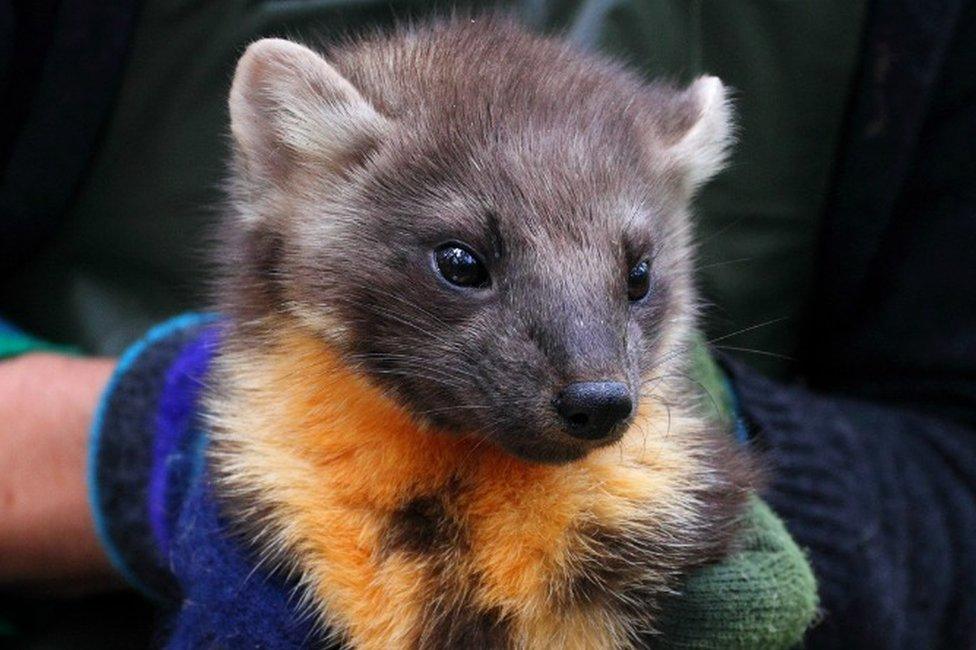Scottish pine martens breeding in Wales
- Published

Twenty pine martens were captured in the Scottish Highlands for release in woodland in Wales
Scottish pine martens have started raising young in Wales for the first time in a six year-long conservation project.
Twenty pine martens were captured and released into the Welsh countryside last year.
The animals, one of Britain's rarest carnivores, were caught by the Inverness, Ross and Skye team at Forestry Enterprise Scotland (FES).
At least three of the 10 females captured recently gave birth to kits.
The capture and release of the Scottish martens forms part of the Welsh Pine Marten Recovery Project.
The animals were introduced to woodland owned by Natural Resources Wales and their behaviour is radio tracked.
Behavioural changes indicated that birthing might be imminent and images from remote cameras have now confirmed that at least five kits have been born.
'Amazing animals'
Giles Brockman, of the FES team involved, said: "The pine marten carries the title of Britain's second rarest carnivore after the wildcat, so these births in Wales are excellent news.
"These amazing animals are comparatively common in Scotland compared with Wales, where they were on the point of being extinct. In fact our research into these animals on the national forest estate indicates that there are healthy populations in many forests.
"Conservation is a big part of our remit so once The Trust had obtained the correct licence from SNH we were more than happy to help and to donate some of our pine martens to the project and help them take their plans forward."
'Danger list'
A further 20 pine martens will be relocated from Scotland in the autumn of this year to forests in Wales and also England.
Mr Brockman said: "Pine marten were about to disappear from the Welsh countryside altogether so this project is a good result for all concerned.
"Hopefully, with a further boost later this year, these amazing animals will be taken off the danger list."